 By Dr. Patricia Thompson
By Dr. Patricia Thompson
Senior Consultant
The Oxford dictionary defines vitality as, “energy and enthusiasm.” Derived from the Latin, vita, which means “life,” it’s a feeling of aliveness, both mentally and physically.
The image that comes to mind when I think of vitality, is seeing my third-grader on the playground with his friends when I come to pick him up after school. They’re completely engaged and present in what they’re doing, and enjoying it fully. They’ve got boundless energy – sometimes even breaking out into impromptu skipping. When he runs to the car, he can’t wait to tell me about the excitements of the day – like new things that he’s learned, fun interactions with classmates, and new games he and his friends have created.
Setting Expectations
While that level of energy seems to be a given for him and his peers, once we reach adulthood, many of us set the bar much lower in terms of how we expect to feel. In fact, if we’re merely managing stress and feeling neutral, we think we’re doing a pretty good job. And, while I’m not suggesting that you need to start galloping to the break room or your home office, wouldn’t it be nice to have a greater sense of zest, enthusiasm, and general joie de vivre? Wouldn’t that make your personal life more enjoyable? Wouldn’t it enable you to get more done?
In his PERMA model of flourishing, positive psychology legend, Martin Seligman, originally included five elements that contribute to an individual’s sense of well-being. They are: positive emotion, engagement, relationships, meaning, and achievement. Research has consistently demonstrated the important role that they play with respect to personal fulfillment and peak performance. Later on, however, based on the input of Emiliya Zhivotovskaya, Seligman realized that while all of these psychologically-based elements are essential, his model was incomplete. As a result, he eventually revised it to the PERMA+V model, to include the critically important physically-based concept of vitality.
Cultivating Vitality
In their Harvard Business Review article “The Making of a Corporate Athlete,” Jim Loehr and Tony Schwartz, argued that energy lays the foundation for our capacity to work. After all, if you set aside time to devote to a given task, but are too tired to do it, your performance will be sub-optimal. Therefore, ensuring that you have enough fuel in the tank to support your daily activities is a necessary component of vitality.
The practice of tending to your body’s needs is referred to as energy management. This is done by being intentional about alternating between energy expenditure and recovery. Unfortunately, based on my experience as a coach, I have witnessed that many professionals see recovery as a luxury, as opposed to something that they should attend to purposely. When feeling tired, they often choose to “grind it out,” instead of taking breaks. However, just as a high-performance athlete needs to schedule in time for rest and recovery to avoid over-training, those who want to maintain a high level of performance at work need to build in recovery time, to avoid burnout.
Just as a high performance athlete needs to schedule in time for rest and recovery to avoid over-training, those who want to maintain a high level of performance at work setting need to build in recovery time, to avoid burnout.
So, how do you manage your energy, to enhance your sense of vitality? Here are some tips you can start putting into practice today.
 1. Prioritize Sleep
1. Prioritize Sleep
Most of us have experienced the feeling of dragging through the day due to a lack of sleep. Yet, when things get busy at work, sleep is often one of the first things that many people sacrifice. In addition to the decreased energy we experience when we haven’t had enough sleep, research has shown that sleep deprivation can negatively affect our critical thinking, decision-making, and creativity. It also makes us more prone to irritability, anxiety, and stress. If you wake up in the morning and aren’t feeling rested and recharged, there’s a good chance that you aren’t getting enough sleep. To combat this, engage in healthy sleep hygiene practices. In addition, taking naps, when needed, has also been shown to boost productivity.
 2. Move Your Body
2. Move Your Body
Regular exercise is another way to build vitality, as it is associated with increased energy levels. When you work out, your body generates more mitochondria (the “powerhouse” cells), and increases oxygen circulation, making your body function more efficiently. If you’re a regular exerciser, you’ve also likely experienced the mood-enhancing effects of endorphins. Therefore, taking time to exercise throughout the week is necessary for maximizing your vitality. Some research has suggested that exercising in the morning is linked with more morning alertness, and getting tired in the evening (which sets you up nicely for sleeping). It also may make you more prone to stick with the habit. However, although I’m a morning person who likes to work out early in the day, I advise my clients to be practical, and schedule it whenever they’re most likely to do it.
If you are aiming to enhance your vitality, in addition to getting regular exercise, you should also move your body during the day. Prolonged sitting is linked to a host of physical conditions, including vascular conditions, pain, cancer, heart disease, and even premature death. In addition, researchers found that every additional hour of average daily sitting was associated with a 2% decrease in the thickness of the medial temporal lobe – a portion of the brain associated with memory function. To address this, consider using a standing or walking desk. Or, move around throughout the day – whether it’s a quick walk around the block or stretching. I sometimes like to take dance breaks between meetings (at home, of course).
 3. Focus on Nutrition
3. Focus on Nutrition
We all know we’re supposed to make healthy food choices. In addition to the obvious effects on our bodies, research also shows that it can affect our moods. Our diets can also contribute to inflammation, which has been linked with feelings of depression. (Other factors that can lead to inflammation include lack of sleep, exercise, obesity, gut permeability, allergies, dental issues, and others), again, to use the analogy of fuel, giving your body the fuel it needs to function optimally is really important, if you want a greater sense of vitality.
On a personal level, although I was well aware of the research about nutrition, I had historically been pretty hit-or-miss in terms of actually applying it. However, last year, I made the decision to cut sugar and processed foods out of my diet. Although the few-day adjustment period to this new way of eating was unpleasant, once I got through it, I couldn’t believe how much energy I had. When the late afternoon rolled around, the difference between how I usually felt, compared to how I felt when giving my body the nutrients (and hydration) it needed was actually shocking.
Currently, when I decide to eat something that I know isn’t particularly nutritious, the effects on my energy level and physical functioning are palpable (like putting the wrong type of fuel into a premium tank). If you’ve been on the fence about cleaning up your diet, I encourage you to give it a try – it just might make a monumental difference in terms of how you feel.
 4. Recharge by Disconnecting
4. Recharge by Disconnecting
Our laptops and smartphones provide us with convenience and flexibility, however, they also make us available around the clock. Research suggests that when employees are available 24-7, they are more prone to burnout in the workplace. Being unable to disconnect also tends to decrease one’s sense of autonomy, which in research, has been linked to decreased vitality. With many more of us working from home, it can be harder to set boundaries between our personal and professional lives. Still, doing so is critical, to give yourself a chance to recharge.
In addition to disconnecting throughout the week, taking time for vacations will also support your sense of well-being. Taking vacations has been linked to improved mental health, increased productivity, and even decreased risk of heart disease. Although Covid-19 has admittedly made the prospect of taking a vacation more complicated, even staycations, in which you fully disconnect, may provide some benefit.
Closing
The business world is one in which we often put so much emphasis on our minds, that we can overlook how our bodies can support us in driving better outcomes. Therefore, a common concern I hear from clients, is that taking time away from work to focus on self-care will decrease their productivity. However, in the research literature, vitality has been linked to better job performance, and better coping with psychological stress.
Ultimately, on a foundational level, vitality comes down to listening to your body and giving it what it needs to thrive. It’s about making yourself enough of a priority that you create the small habits that will accumulate into creating a higher quality of life and greater performance across the board. Who could argue with that?

